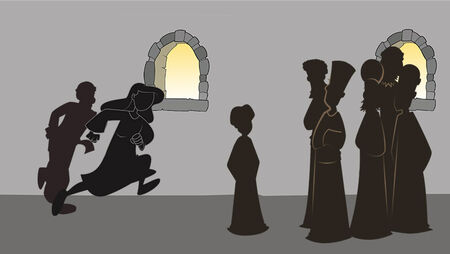
Helping Kids Learn from Mistakes
Bible Verse
52 Jesus became wise, and he grew strong. God was pleased with him and so were the people. Luke 2:52
As I was raising my children, I wanted to instill within my children a deep awareness of God’s love for them, and I wanted to be sure they didn’t make mistakes that destructively altered their lives. However, I didn’t have the power to “make” this happen. So, I felt fearfully powerless, which caused me to overreact when my children made mistakes and focus too much on their performance. Thankfully, God works through imperfect parents! I now have two wonderful adult children and often joke with them about wishing I could have a do-over to raise them again using everything I’ve learned over the years. When I shared this with my son, he quipped back, “Oh, Mom, you would just make different mistakes.” How true!
Children enter the world insatiably curious and willing to try things, make mistakes, and learn from their mistakes. Think about how children learn to walk—they fall over and over again. This is how most learning occurs and, as parents, we need to help children see this as healthy and normal. We want to raise children who see life as a series of problem-solving opportunities they tackle to learn and grow, instead of raising children who fear not being as good as others, avoid things they don’t already know, and see mistakes as evidence of failure. The parenting strategies below help children retain and refine the natural curiosity and risk-taking they are born with.
Celebrate effort: It is easy to focus on outcomes with statements like “Congrats on that ‘A’ you got on your writing assignment.” However, getting an “A” only matters if it represents learning. Instead of focusing on outcomes, watch for effort and celebrate it. “I am so impressed with how hard you worked on that project” teaches children their effort is what matters most to you.
Reward tenacity: When your child pushes ahead and continues working on something, reinforce this with statements like, “I know you’re really struggling with how to get the notes right when you play that song. I can tell you’ve been tempted to give up a couple of times. I love the way you keep slowing down and repeating each measure to teach your fingers how to move in new ways. I’m excited to hear how the song sounds when you master it.”
Encourage learning with “yet”: When your child makes statements like, “I can’t hit a baseball,” try responding with, “You are right, you haven’t hit the ball yet. I’ve seen you learn to do lots of things, and if you keep working hard in practice, I’m betting you’ll be able to hit a baseball soon.” The word “yet” helps children see learning as a normal process they are capable of engaging in.
Mistakes create learning opportunities: Children need to know they can make mistakes without being looked down on, ridiculed, or loved less. When they make mistakes, focus on what they can learn from the mistake. Help them identify what they can do differently next time. For example, if your child tries hard to be a good friend by sharing a friend’s secret, focus on their desire to be a good friend and the ways they have done this well in the past. Then help them identify what they learned, how they can repair the relationship, and what they can do differently next time.
If you weren’t raised in a family that parented in this way, you will need to use all the strategies just discussed as you engage in the process of learning to parent from this perspective. Give yourself grace, and keep trying. The results are worth it!
Want to do a deep dive? Check out Family Fire's article Equipping Children for Learning Success.



